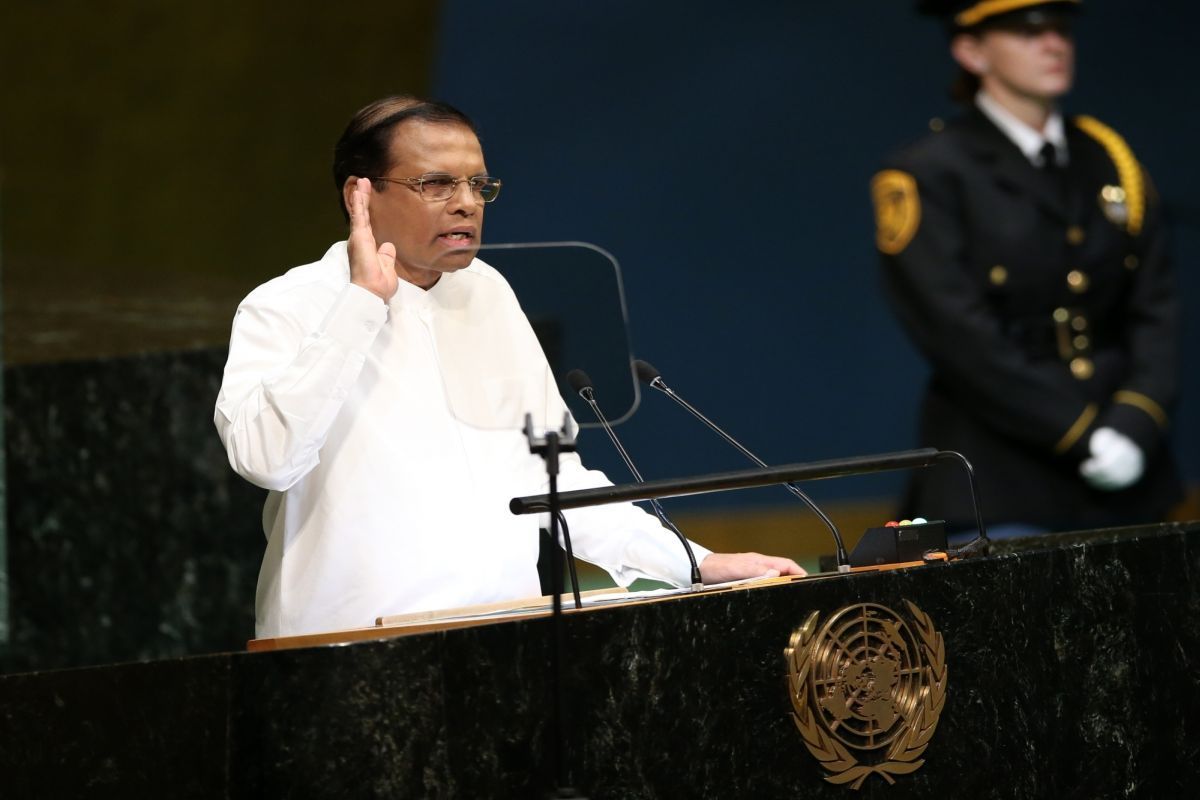Sri Lankan President Mathripala Srisena on Friday said he did not receive any report or information that the suicide bombers involved in the Easter Sunday serial blasts had travelled to India prior to the attack.
He also said a clear report about a possible terror attack was sent by Indian intelligence agencies to their Sri Lankan counterparts 17 days prior to the April 21 bombings but he was not informed about it.
Advertisement
“Had I known about a possible attack, I would have taken necessary steps to prevent it,” he said during a media interaction.
Sri Lanka was struck by a string of bomb blasts on April 21 in which over 250 people were killed and thousands were wounded.
Srisena said he had to leave for a foreign trip on April 16 and till then he was not informed about the Indian intelligence report, though there had been exchanges on the issue between the defence secretary and the then inspector general of police.
“Had I known it, I would not have left the country,” he said.
“This is a great shortcoming from our defence secretary and that is why I have removed defence secretary and inspector general of police from their respective offices,” he added.
Days after the deadly serial blasts that killed over 253 people, the Sri Lanka army chief said the suicide bombers had travelled to India to possibly train in terrorist activities.
In an interview to BBC World, Lieutenant General Mahesh Senanayake said, “They had gone to India, Kashmir, Bangalore, Kerala state. Those are the information available with us”.
However, a top intelligence officer in Srinagar said that there was no input to prove the claim.
“As far as our information and inputs are concerned, there is nothing to prove that any of the suicide bombers involved in the attacks in Sri Lanka had visited Kashmir in connection with any subversive activity or for obtaining terror training.”
According to the reports India had alerted Sri Lanka thrice on a suicide bombing.
India had alerted Sri Lanka as early as April 4 to the possibility of imminent suicide attacks which became a reality on April 21.
According to reports, the first alert was on April 4, which told Sri Lanka that, apart from churches, the Indian High Commission in Colombo could be a target.
The second alert, according to the Associated Press, was sent on Saturday, the day before Easter, which provided specific information about possible targets.
The third alert was reportedly sent hours before the first suicide blast.
Sri Lankan Prime Minister Ranil Wickremesinghe had also acknowledged that alerts had been sent by India.
The blasts targeted St Anthony’s Church in Colombo, St Sebastian’s Church in the western coastal town of Negombo and Zion Church in the eastern town of Batticaloa around 8.45 am (local time) as the Easter Sunday mass were in progress.
The Sri Lanka President said necessary disciplinary and legal action will be taken against the guilty based on findings of the ongoing investigation into the matter.
Sirisena said his government has received support from India, the UK, the US and few other countries in the investigation into the bombings.
Sirisena had earlier on Friday met Prime Minister Narendra Modi and held bilateral talks on terrorism and extremism.











